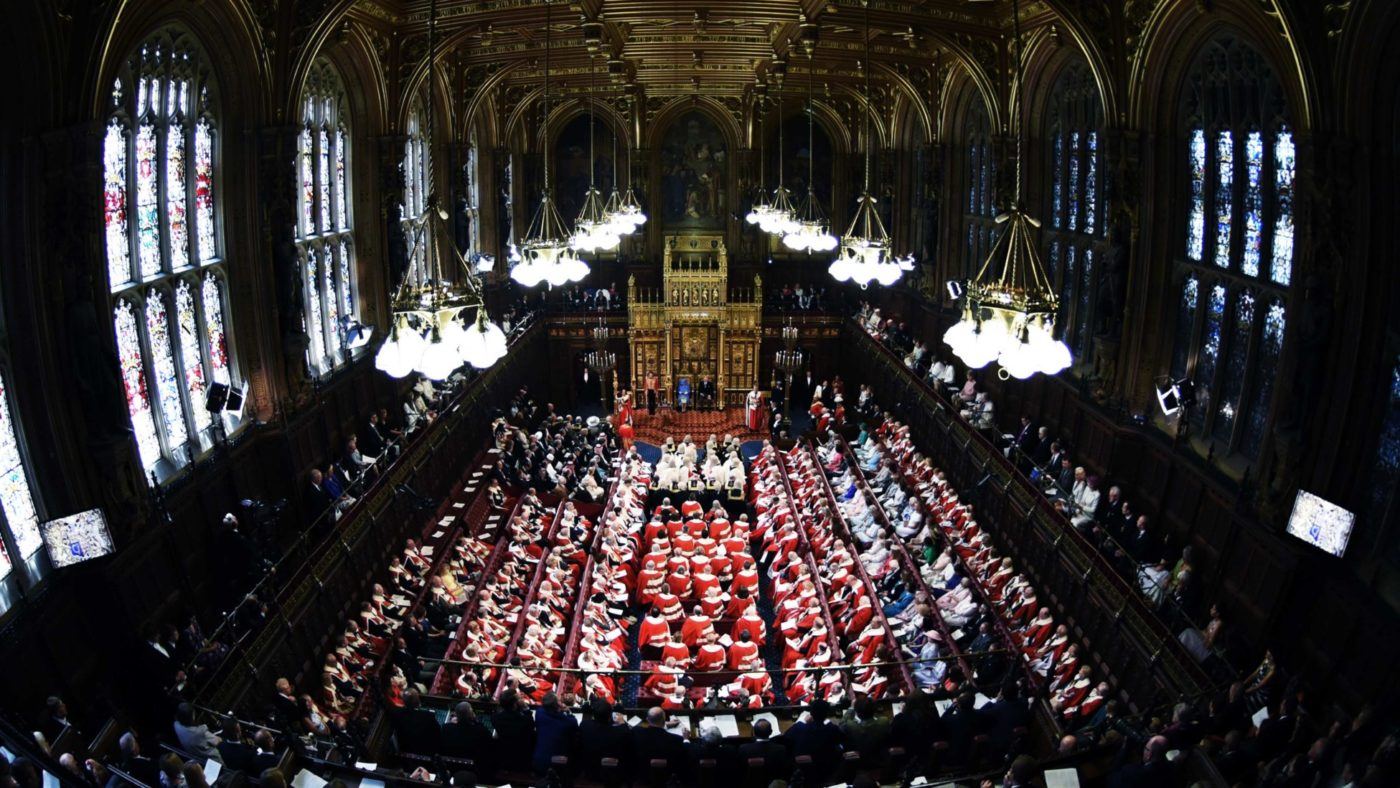As expected, the Queen’s Speech was about Brexit, Brexit and Brexit.
Sure, there were a few other minor ditties in there. Some kind of bill to increase housebuilding (no government’s ever said that before…), something about cutting motor insurance premiums (apparently whiplash-related – must be some kind of opportunity for cartoonists to do Corbyn crashing into May from behind…), and doubling down on the energy price cap (one presumes May must think she can rely on Labour support for that, because I suspect there might be three or four Conservative rebels), a bill to extend HS2 to Crewe, some counter-extremist measures (perhaps implementing May’s “enough is enough” thought), and some measures on mental health that will doubtless carry support across the House.
The international development ringfence also stays (perhaps a bit of a surprise, though there’d probably be more rebels against ditching it than against keeping it). There was no mention of a Trump state visit (though No 10 says that’s only because there isn’t a date confirmed yet, not because it’s cancelled). And there was a continuing commitment to improve the public finances — no “end to austerity” yet.
But in truth, all the big action was about a series of Brexit bills. Bills to repeal the European Communities Act 1972, to control immigration and to enable the UK to conduct its own trade policy.
Forcing a bill to establish a UK immigration policy was the obvious way to kill off any residual arguments about staying in the Single Market (and hence maintaining Free Movement). Labour MPs will struggle to vote against it, having committed to immigration control in the manifesto, and there will be few, if any, Conservative rebels except on detailed measures. It will pass handily and all talk of staying in the Single Market will then become otiose.
A bill to enable the UK to conduct its own trade policy might face more challenge. Some on the Labour benches want to stay in the Customs Union and apparently a few on the Conservative benches do too. Pedants may cry that one can still negotiate trade deals while being in a customs union, but everyone will understand that in practice if that bill passes, it will kill off the option for the UK to stay in an widespread EU customs union.
Pitching it positively (as a bill to enable us to do trade deals) rather than negatively (as a commitment to leave the customs union) will place Labour in an awkward position if it wants to oppose. Will the public really understand and support Labour voting against us being able to do our own trade deals with the US and others?
Perhaps more exciting might be the two bills to establish a new UK agriculture and a new UK fisheries policy. The Conservative manifesto undertook to spend the same on agriculture this parliament as we would have if we had remained in the EU. But an agriculture bill must give some indication of the Government’s direction of travel in post-Brexit agriculture reform.
Agriculture is also of particular interest because EU subsidies are a much bigger issue in Northern Ireland than in the rest of the UK, so the DUP will have important influence and might conceivably vote against the Government if it is not content with the policy. (That might even have been a factor in the difficulties regarding the DUP-Conservative talks.) If we left the EU with no agriculture bill to create our own agriculture regime, farmers and landowners could face, err, shall we say ”interesting times”.
One other Brexit-related measure is the repatriating of powers to set our own (non-UN-mandated) international sanctions (which has been an EU prerogative up to now). That might lead to all kinds of interesting House of Commons debates on whether we should impose sanctions on this regime or that.
The Queen’s Speech might not have been all that different if Theresa May had won a huge majority. Perhaps the only extra measure might have been a social care reform bill. But with things as they are, there is little realistic scope, and no votes or political capital available, for doing anything significant other than Brexit for the next two years.
Good. Get Brexit sorted. Play for time. Keep Corbyn out. Cross your fingers and hope.


